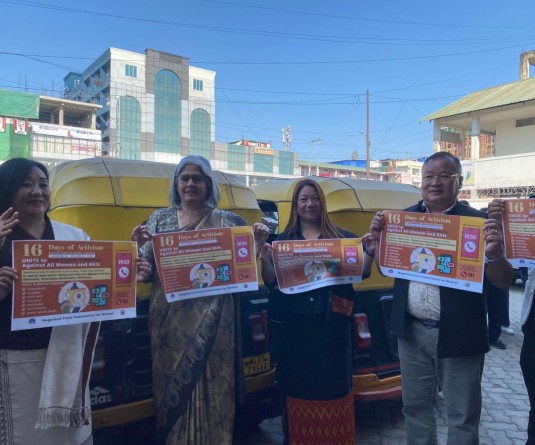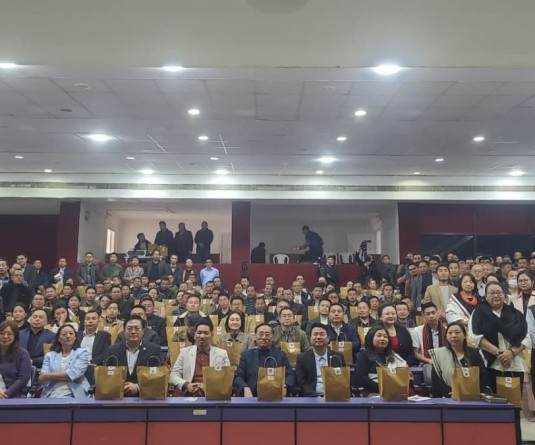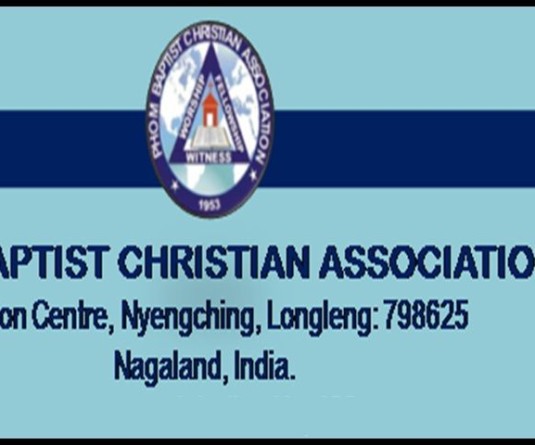
State Seminar at Immanuel College examine its nuances
Morung Express News
Dimapur | August 6
While agreeing that Nagas’ identity is deeply rooted in its oral traditions and imperative for generational continuity, there is also a growing realization that it needs to be re-invented and renewed in tune with the changing dynamic of the contemporary world.
This was one of the conclusions drawn at a daylong State Seminar entitled, “Oral Tradition as a Source for Re-interpreting Nagaland: Social Economic and Political Dimension,” held here today at Immanuel College Dimapur. Faculties and students from different colleges and institutions across the state participated in the seminar where they learned and discuss issues related to the theme.
The presenters at the seminar located their narrative on the theme of the day. Talichuba Walling and Temjenzungla Aier, both Assistant professors at Immanuel College look at the Ao Naga oral traditions through institutional and material culture respectively.
The former stressed on how these traditional institutions have enabled a democratic polity while the latter argued for maintaining the genuine essence of material culture and checking random proliferation.
Do the customary laws at times perpetuate historical discrimination? Charles Mhonthung Ezung, the Vice principal of Immanuel College posed locating his paper on contemporary social and political challenges.
Taking the case of women reservation issue, he argued that every custom needs to be re-invented or renews to suit with the changing time without losing its core value.
Such issues sages are unique, complex and sensitive. Though gradual changes are taking place in recent times, no meaningful development can be bought without meaningful representation, he asserted.
In a sweeping yet coherently presented argument, Imkongakum Ao of History department, Pranabanada Women College opined that oral traditions predate the ‘historicity’ of written history.
Calling for recovering the fast losing oral traditions, he asserted that Nagas as a whole and researchers, in particular, needs to question, validate and falsify the colonial account in order to derive a concise narrative.
Basing that paper on Temsula Ao books “These Hills Called Home,” Tongpang Walling of Unity College English Department stressed on how “memories are kept alive” through mnemonic culture and in essence, validates oral traditions.
Likewise, Imolangla of English Department discussing Easterine Keri’s “When the River Sleeps” urged locating oral traditions beyond social and historical narratives. The rich supernatural and spiritual realms which oral traditions presents often act as reservoir moral and societal governance, she noted.
Athikho of Eastern Christian College Dimapur retold one narrative of Nagas ancestral journey but observed that different and contradicting narratives exist. In this regard, he called for intra-tribal and cross cultural stories and collaborations to present a definitive narrative.
Dealing into the economic aspect of the theme, Dr. L Imlinichet of Economics Department Fazl Ali College discussed how the social-cultural and village polity in Naga society was intimately interwoven with agriculture. The self-sustaining agricultural economy was based unique technique and practice which were scientifically sound, he said. He also looks at hold land-holding pattern and practices also influence the present economic outlook of the Nagas.
Earlier, setting the atmosphere for the day, Dr. Sharatchandra Singh asked the attendees to learn from one another quoting a popular saying that, “Everyone you will ever meet knows something you don't” and urging them to keep the quest for learning alive at the period of life.
Sinyhulo Keppen of Political Science, Immanuel College gave the keynote address while Dr. A Loso Chalai, Chairman of Governing Body of the college gave the inaugural address. It concluded with a vote of thanks by Dr. J Limainla Ao, the seminar coordinator.






